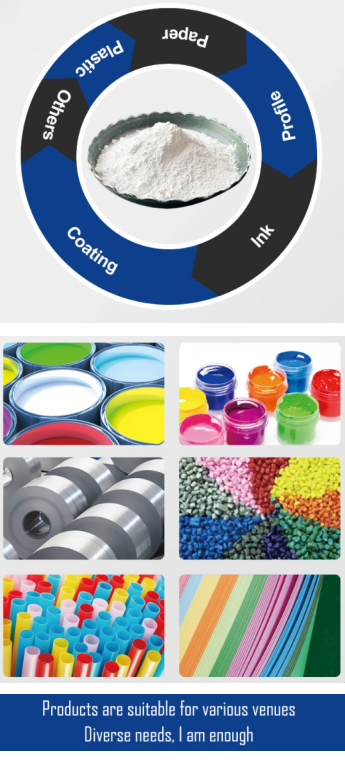
Aug . 14, 2024 19:16 Back to list
High-Quality Titanium Dioxide for Industrial Applications and Its Versatile Uses in Various Industries
Industrial Grade Titanium Dioxide Properties, Applications, and Future Outlook
Titanium dioxide (TiO2) has become a ubiquitous material in various industrial applications, thanks to its exceptional properties and versatility. Classified primarily as an industrial-grade compound, titanium dioxide finds its way into a wide range of products, including paints, coatings, plastics, and even food items. This article will delve into the characteristics, applications, production methods, and future trends of industrial-grade titanium dioxide.
Properties of Titanium Dioxide
Industrial-grade titanium dioxide is renowned for its high refractive index and strong UV light absorption capabilities. It appears as a white powder, making it an ideal whitening agent. The compound exhibits outstanding opacity, which allows it to effectively cover underlying materials, thereby providing better surface finishes. Additionally, titanium dioxide is chemically stable, non-toxic, and resistant to degradation, making it suitable for both indoor and outdoor applications.
There are three primary forms of titanium dioxide rutile, anatase, and brookite, with rutile being the most commonly used in industrial applications due to its superior durability and brightness. The choice of form is often dictated by the specific requirements of the end product and the desired characteristics, such as color and opacity.
Applications in Various Industries
One of the primary applications of industrial-grade titanium dioxide is in the paint and coatings industry. Its excellent covering power and bright white color make it a preferred pigment, enhancing the durability and aesthetic appeal of paints and coatings. The ability to reflect UV light also contributes to the longevity of these products, reducing fading and degradation.
In the plastics industry, titanium dioxide is used to improve the opacity and brightness of plastic products. It enhances the overall appearance and performance of consumer goods, including packaging materials and household items. Furthermore, the compound is employed in the production of photocatalytic materials, which have applications in self-cleaning surfaces and air purification technologies.
industrial grade titanium dioxide

Titanium dioxide also has significant roles in the cosmetics industry, where it is used in sunscreens and makeup products. Its ability to absorb UV radiation helps protect the skin from harmful sun exposure. Additionally, in the food industry, titanium dioxide is employed as an additive for its coloring properties, although its use is subject to regulatory scrutiny in various regions.
Production Methods
The two primary methods of producing industrial-grade titanium dioxide are the sulfate process and the chloride process. The sulfate process involves the reaction of titanium-containing ores with sulfuric acid to produce titanium sulfate, which is then converted to titanium dioxide. While this method is relatively inexpensive, it generates significant waste and can be less environmentally friendly.
In contrast, the chloride process is more efficient and produces a higher purity product. This method involves the chlorination of titanium ores, followed by oxidation to yield titanium dioxide. It is considered to have a lower environmental impact and is increasingly favored in modern production facilities.
Future Outlook
As industries continue to prioritize sustainability and environmental responsibility, the demand for high-quality, eco-friendly materials is on the rise. Industrial-grade titanium dioxide is well-positioned to meet these needs. Advancements in production techniques are likely to reduce environmental impact, while ongoing research into its applications will uncover new uses in emerging fields such as nanotechnology and renewable energy.
In summary, industrial-grade titanium dioxide plays a crucial role across various industries due to its desirable properties, widespread applications, and adaptability to different production methods. As technology evolves and the global market shifts toward sustainable practices, titanium dioxide is poised for continued relevance in the industrial landscape.
-
Premium 6618 Titanium Dioxide for GPT-4 Turbo Applications
NewsJul.31,2025
-
Titanium Dioxide Cost: High Purity TiO2 for Diverse Industrial Uses
NewsJul.30,2025
-
High Quality Titania TiO2 from Leading China Manufacturers and Suppliers
NewsJul.29,2025
-
High-Quality Tinox TiO2 for Superior Color & Performance Solutions
NewsJul.29,2025
-
High Quality Titania TiO2 from Leading China Supplier & Manufacturer
NewsJul.29,2025
-
High-Performance r6618 TiO2 for Superior Whitening and Versatility
NewsJul.28,2025
